

The title of this article is neither emotional nor an attempt to persuade the now undoubtedly effective authorities of the United States—especially its judicial bodies—to show solidarity with Colombia. Much less is it an irresponsible suggestion for them to engage in conduct that could be considered interventionist. Not at all.
This opinion column’s title is a forceful and unavoidable call for the northern power’s authorities to fulfill their constitutional duties and obligations by arresting a highly dangerous criminal against humanity who has already been criminally denounced before them for the still unpunished kidnappings of three U.S. citizens and the also unpunished murder of one of them.
It is now undeniable that this individual, Petro Urrego, has positioned himself as one of the most prominent and visible leaders of the continental criminal left-wing projects known as 21st Century Socialism and the Puebla Group. It is neither accidental nor coincidental that Petro Urrego—besides being the main ally, partner, and defender of the Cuban overlord ruling his Venezuelan colony, the also illegitimate Nicolás Maduro—was recently appointed interim president of the Community of Latin American and Caribbean States (CELAC).
Let’s review his background. In 1985, Mr. Gustavo Francisco Petro Urrego was sentenced by a criminal court judge to 18 months in prison for being a member of an antisocial armed group linked to drug trafficking and responsible for terrorist acts across Colombia.
At the time of his capture, this dangerous individual was in possession of a military-grade weapons cache. After serving 15 of the 18 months of his sentence, he was released on account of reduced sentencing for education and labor. In other words, Mr. Petro Urrego has a criminal record for terrorism.
In 1989, another submissive Colombian government signed a “peace agreement” with the defeated narco-paramilitary leftist gang M-19, a terrorist group in which Petro Urrego was an active member and leader. Through Law 77 of December 22, 1989, and Decree 206 of January 22, 1990, a procedure was established—blatantly in violation of International Humanitarian Law (IHL)—to grant legal pardons individually and by written request to the defeated narco-paramilitaries of M-19.
In March 2018, I discovered that Petro Urrego was never pardoned because he never requested the legal benefit, and therefore the legal consequences of his undeniable and irremediable criminal record for terrorism should never have been suspended.
According to Articles 122, 179, and 197 of Colombia’s still-valid Constitution, because this despicable individual has a criminal record for terrorism, he has been—and will be for the rest of his life—disqualified from holding public office, entering into contracts with the state, or running for elected office. I also discovered that, fraudulently and illegally, in March 1990, three arrest warrants issued against this man for his involvement in heinous crimes were canceled.
With Petro Urrego’s legal status fully certified by the Ministry of Justice and Law of Colombia as a non-pardoned demobilized member of M-19 (see attached certification image), in 2018 I exhausted legal avenues in Colombia before two high courts (Council of State and Supreme Court) to demand that the law and justice be applied to this man and to prevent him from even running for the presidency of Colombia, as he was permanently disqualified.
In addition to denouncing his permanent disqualification from running for elected office, I consistently emphasized his compromised criminal status as a still unpunished war criminal, a still unpunished genocidaire, a still unpunished criminal against humanity, and a still unpunished perpetrator of serious violations of International Humanitarian Law (IHL).
From May through October 2018, I filed five (5) ELECTORAL NULLITY ACTIONS with the Council of State, one of Colombia’s four high courts. All of these well-founded and legally sound filings were denied in record time and through rulings lacking legal substance.
Even though the political bias of these high courts was obvious and I had already begun investigating ways to appeal to international justice under the principle of UNIVERSAL JURISDICTION, I nonetheless pursued the next available legal remedy in Colombia’s justice system against this criminal: filing an INVESTITURE LOSS CLAIM before Colombia’s Supreme Court of Justice.
Unsurprisingly, and again in record time, the Supreme Court rejected this motion in a ruling that seemed to have been written by Petro Urrego’s defense team.
Having reached the conclusion that no well-founded legal remedy would ever succeed against this individual or his criminal comrades in Colombia, I dedicated the following years—until January 2022—to studying, researching, reading, and drafting an INTERNATIONAL CRIMINAL COMPLAINT (ICC) against Petro Urrego, due to his status as a still unpunished war criminal, genocidaire, criminal against humanity, and perpetrator of serious violations of International Humanitarian Law (IHL).

To draft and file the said INTERNATIONAL CRIMINAL COMPLAINT (ICC) in the United States of America, I invoked UNIVERSAL JURISDICTION—a concept established by international criminal law to bring justice to victims whose countries’ judicial systems are either nonfunctional or complicit.
To ensure this mechanism worked and that the justice officials in this country could not refuse such a novel and complex legal action, I decided to include U.S. citizens who had been victims of Petro Urrego and his left-wing Colombian narco-terrorist gang, M-19.
After four years of work, the result was an 800-page book submitted to judicial authorities in several countries, denouncing just forty of the still unpunished atrocities committed by Petro Urrego and his comrades in the defeated left-wing Colombian narco-paramilitary gang M-19. I say “just forty (40)” because the National Center for Historical Memory of Colombia has recorded more than 5,900 (FIVE THOUSAND NINE HUNDRED) atrocities committed by Petro Urrego—none of them punished to this day.
How does one reach such a degree of indifference and contempt for Human Rights (HR)? Under the supposed banner of peace, and with the pathological intent of legitimizing and granting impunity to their criminal comrades, leftist Colombian political operatives and bureaucrats have created and spread four myths that contradict International Humanitarian Law (IHL).
Due to space constraints, I won’t cite excerpts, only name the myths and list the IHL tools that disprove them so readers can verify on their own.
First Myth: Nothing in international law grants any person the right to violate the Human Rights of others, let alone under the guise of a “social struggle,” “revolution,” “civil disobedience,” “insurrection,” “rebellion,” or “social uprising.” Some IHL instruments that affirm this include:
- Article 30 of the Universal Declaration of Human Rights (1948)
- Article 5 of the International Covenant on Civil and Political Rights (1966)
- Article 3 of Protocol II Additional to the Geneva Conventions of 1949 on the Protection of Victims of Non-International Armed Conflicts (1977)
Second Myth: It is absolutely false that any of the atrocities committed by these infamous criminals can be classified as political crimes or offenses and thus be eligible for amnesty, pardon, or forgiveness. IHL clearly defines which criminal behaviors can never be amnestied, pardoned, or forgiven.
These acts are classified as War Crimes, Crimes Against Humanity, and Serious Violations of International Humanitarian Law (IHL). These offenses are explicitly listed and described in the following instruments:
- Section (b) of the Statute of the International Military Tribunal at Nuremberg (1945) – War Crimes
- Section (c) of the Statute of the International Military Tribunal at Nuremberg (1945) – Crimes Against Humanity
- Article 50 of the Geneva Convention I for the Amelioration of the Condition of the Wounded and Sick in Armed Forces in the Field (1949) – Serious Violations
Third Myth: There are no privileges, immunities, blessings, safe-conducts, or any document whatsoever that can prevent the investigation, arrest, extradition, trial, sentencing, and punishment of war criminals, genocidaires, criminals against humanity, or perpetrators of serious violations of IHL. This is established in Article IV of the United Nations Convention on the Prevention and Punishment of the Crime of Genocide (1948).
Fourth Myth: Individual responsibility for any and all crimes committed within a criminal organization applies to each person simply by virtue of their membership in that criminal organization. That is, it is unnecessary to prove that a person held or fired a weapon—he or she is liable for everything committed by any member of that criminal gang.
This was established in the STATUTE OF THE INTERNATIONAL MILITARY TRIBUNAL OF NUREMBERG (1945) and in Article II of the CONVENTION ON THE NON-APPLICABILITY OF STATUTORY LIMITATIONS TO WAR CRIMES AND CRIMES AGAINST HUMANITY (1968).
With the definitions of these atrocities clearly established, and reminding the reader that under International Humanitarian Law (IHL) the possibility of prosecuting, trying, and punishing those responsible for these crimes has no statute of limitations, I will now share what I have done before the justice system of the United States of America, more specifically by filing my INTERNATIONAL CRIMINAL COMPLAINT (ICC) with the U.S. Department of Justice, Civil Rights Division – Criminal Section.
On Tuesday, February 22, 2022, invoking UNIVERSAL JURISDICTION and acting as complainant, although I was in Washington, D.C., due to the COVID-19 protocols then in place at federal buildings, I had to use UPS’s certified urban delivery services to file with the US DEPARTMENT OF JUSTICE, CIVIL RIGHTS DIVISION – CRIMINAL SECTION, my INTERNATIONAL CRIMINAL COMPLAINT (ICC) in Spanish against Mr. Gustavo Francisco Petro Urrego. I have confirmation that the document was delivered.
Subsequently, on Wednesday, May 4, 2022, once again in Washington and again unable to file it in person due to COVID-19 protocols, I sent the same INTERNATIONAL CRIMINAL COMPLAINT (ICC) against Petro Urrego to the U.S. Department of Justice, Civil Rights Division – Criminal Section, by certified urban mail using FedEx services. This time I sent the translated English version. I have confirmation that this document was also delivered.
The names and details of the still unpunished Crimes Against Humanity of kidnapping and murder committed against three American victims that I included in the aforementioned INTERNATIONAL CRIMINAL COMPLAINT (ICC) are as follows:
On August 4, 1975, American citizen Donald Cooper, who served as General Manager of Sears Roebuck in Colombia, was kidnapped. Mr. Cooper, a defenseless, innocent, and unarmed member of the foreign civilian population who took no part in hostilities, was held hostage for extortion purposes by the accused Petro Urrego and his comrades from the defeated narco-paramilitary Colombian leftist gang M-19 for eighty-seven days. The accused Petro Urrego and his M-19 comrades collected a ransom of more than $1 million to release Mr. Cooper alive. That money was used by these M-19 narcoterrorists to fund the political party ANAPO (National Popular Alliance), as well as to purchase weapons and strengthen their criminal infrastructure.
While he was held hostage, Mr. Cooper was subjected to all kinds of indignities, atrocities, abuse, humiliation, and mistreatment. Along with this torture, Mr. Cooper was deliberately kept in the deplorable hygienic and sanitary conditions that the accused Petro Urrego and his narco-paramilitary M-19 comrades intentionally imposed on their victims in the macabre «people’s prisons» they designed specifically to hold their hostages.
At dawn on January 19, 1981, Mr. Chester Allen Bitterman, an American Christian missionary linguist, was kidnapped and ultimately murdered after being held hostage for 48 agonizing days.
After violently storming the Summer Institute of Linguistics headquarters in Bogotá, D.C., a group of seven M-19 narco-paramilitaries, intending to kidnap the local director Álvaro Wheeler, ultimately kidnapped trainee translator Chester Allen Bitterman, a defenseless, innocent, and unarmed member of the foreign civilian population who took no part in hostilities and who, unfortunately, happened to be present at the time.
As Petro Urrego and his M-19 comrades publicly stated, the criminal, deranged, and extortionate purpose of attacking the Summer Institute of Linguistics was to take a defenseless, innocent, and unarmed member of the foreign civilian population hostage to send a message to the world and to the newly sworn-in President of the United States, Mr. Ronald Reagan: The Summer Institute of Linguistics, a pastoral NGO that taught languages and evangelized indigenous communities in various nations around the world, had to leave Colombia within thirty days, or else the American citizen would be killed.
Since neither the U.S. government nor the Colombian government acceded to the demands of the accused Petro Urrego and his defeated M-19 comrades, after forty-eight days of captivity in extremely degrading and precarious conditions, Mr. Bitterman was murdered. His lifeless body was found wrapped in an M-19 flag on a public transport bus.
Diego Ascencio, the accredited Ambassador of the United States of America to Colombia, was kidnapped along with fifty-six (56) other people (25 of whom were foreign diplomatic personnel). His captivity lasted sixty-one (61) days, beginning on Wednesday, February 27, 1980, at 12: 15 p.m. and ending on April 25, 1980.
The mass and extortionate kidnapping for media purposes of this internationally protected person, as well as the takeover of an internationally protected building—namely, the Dominican Republic Embassy in Bogotá, D.C., capital of Colombia—lasted 60 days. The accused Petro Urrego and his defeated M-19 comrades demanded, in exchange for releasing all their hostages alive (including minors), not only $50 million but also the release of 300 of their narco-terrorist comrades imprisoned in Colombian jails.
It is important to note that U.S. authorities, in accordance with 18 U.S.C. § 1201, are obligated to investigate the kidnapping of three of their citizens and the murder of one of them, as these are federal crimes. Section 1201 of Title 18 of the U.S. Code clearly states that «whoever unlawfully seizes, confines, inveigles, decoys, kidnaps, abducts, or carries away and holds for ransom or reward (…) any person shall be guilty of kidnapping and shall be punished by imprisonment for any term of years or for life and, if the death of any person results, shall be punished by death or life imprisonment.»
Additionally, and as established by the U.S. Department of Justice, hostage-taking (kidnapping) becomes a crime under federal jurisdiction when, among other conditions, the hostage is a U.S. agent or citizen abroad or an internationally protected person (diplomat).
So then, can we agree that a sovereign, respected, powerful nation with strong institutions like the United States of America cannot accept that a kidnapper and murderer—who represents the worst kind of unpunished criminals in recent human history—continues to walk free? Or do we not agree on this basic principle of legality and humanity?
For the past three decades, the Cuban-origin globalist plague known as “21st-century socialism” has implemented a macabrely effective playbook across several nations, resulting in the economic, social, political, and moral collapse of many countries in the Americas—and now its target is Colombia. These infamous and insatiable communists have also written the script to be followed by the supposed “opposition leaders” in the affected nations—unscrupulous politicians who have been and continue to be accomplices in the success of this induced calamity.
Fortunately for the citizens and investors of Colombia, South America, and possibly the world, what these infamous criminals did not anticipate when implementing their sinister playbook in Colombia was that their prized pawn—Petro Urrego, the fratricidal figure—had a deeply compromised legal record that someone might uncover and prosecute at the international level.
Now that I have denounced him, it is precisely the impunity that Petro Urrego has enjoyed until now that condemns him to political and, ultimately, judicial death. Once he is no longer in power because he is convicted of the criminal charges against him, everything he did as president will become null and void, because “in law, everything is undone the same way it was done.”
Although Petro Urrego has proven to be a grave and dangerous regional threat to Washington and to all civilized nations on Earth, the good news is that it is now in the hands of the United States Justice System to put an end to this murderous, destructive, and still unpunished criminal career.
In the case of this delusional criminal, there is no possible justification—political, ideological, geostrategic, or otherwise “politically correct”—to interfere or prevent the rule of law, the application of justice, the prevalence of truth, and the weight of accountability from taking their course. And he knows this—which is why he is so eager to bring Colombia down to the level of those broken, foul-smelling transnational criminal leftist cesspools like Cuba, like Venezuela (now a Cuban colony), and like Nicaragua.
The post U.S. Authorities are Obligated to Arrest Colombian President Petro Urrego appeared first on The Gateway Pundit.
This article may have been paraphrased or summarized for brevity. The original article may be accessed here: Read Source Article.
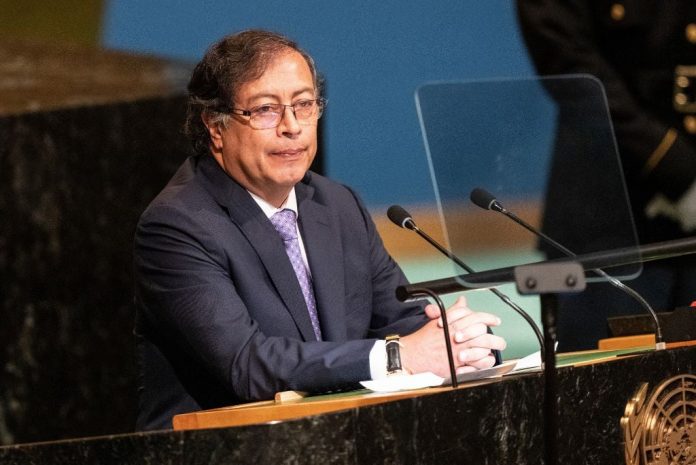
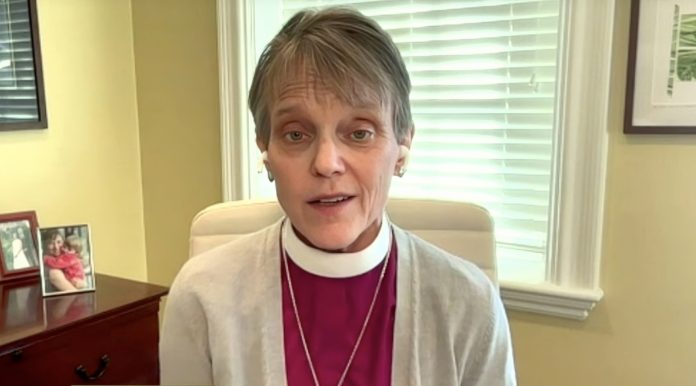
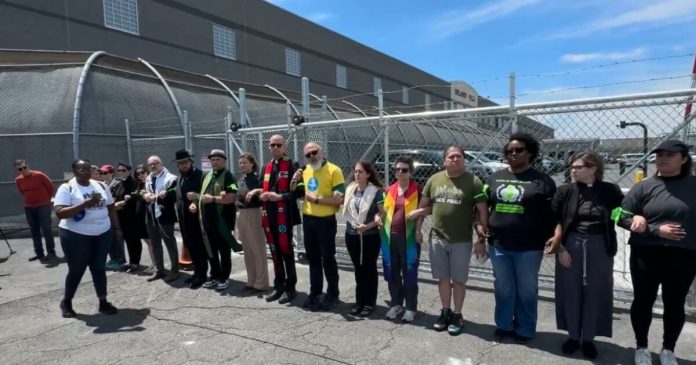


 (@GuntherEagleman)
(@GuntherEagleman) 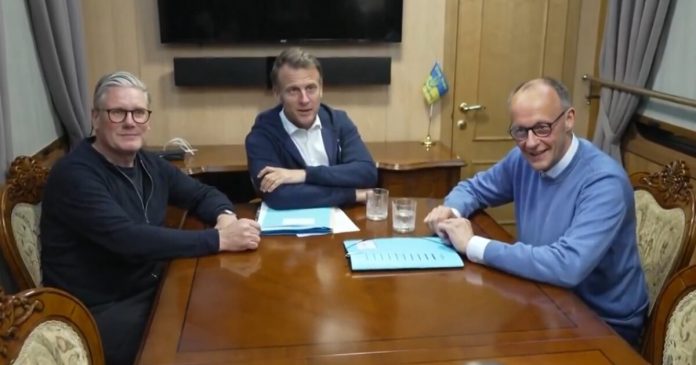

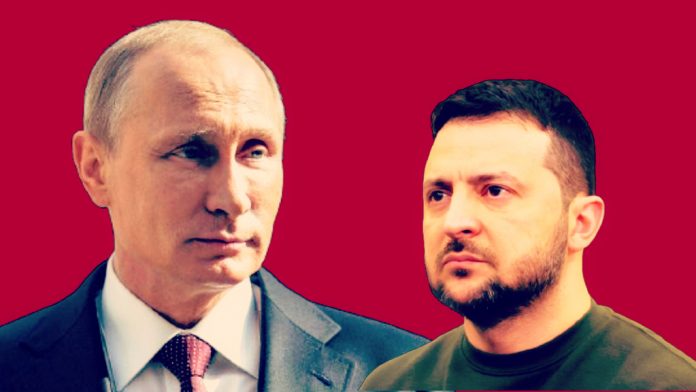
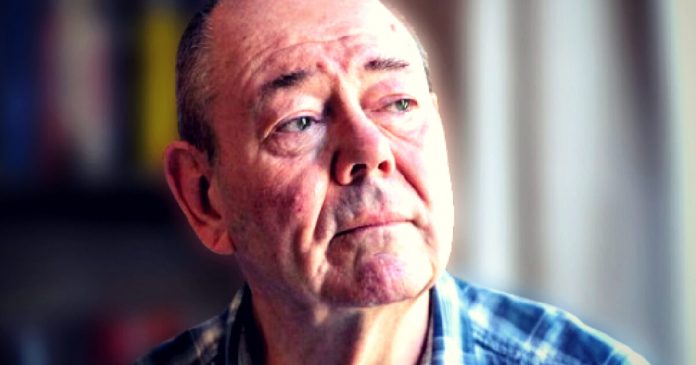

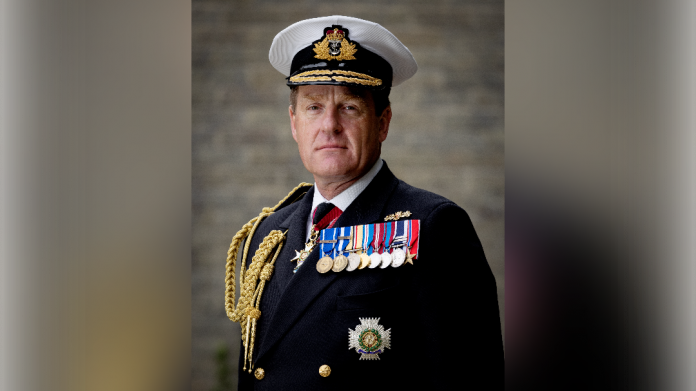
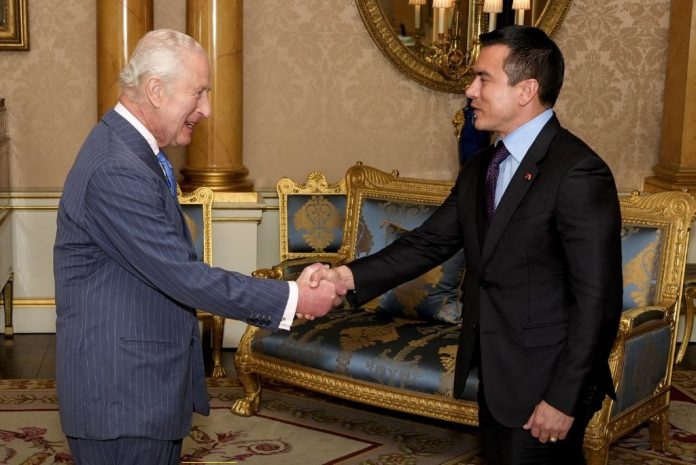






![President Trump Gives Barron A Shout Out At Inaugural Parade: His Unexpected Response is Pure Gold! [VIDEO] president-trump-gives-barron-a-shout-out-at-inaugural-parade:-his-unexpected-response-is-pure-gold!-[video]](https://news.lateawakening.com/wp-content/uploads/2025/01/35545-president-trump-gives-barron-a-shout-out-at-inaugural-parade-his-unexpected-response-is-pure-gold-video-100x70.jpg)



